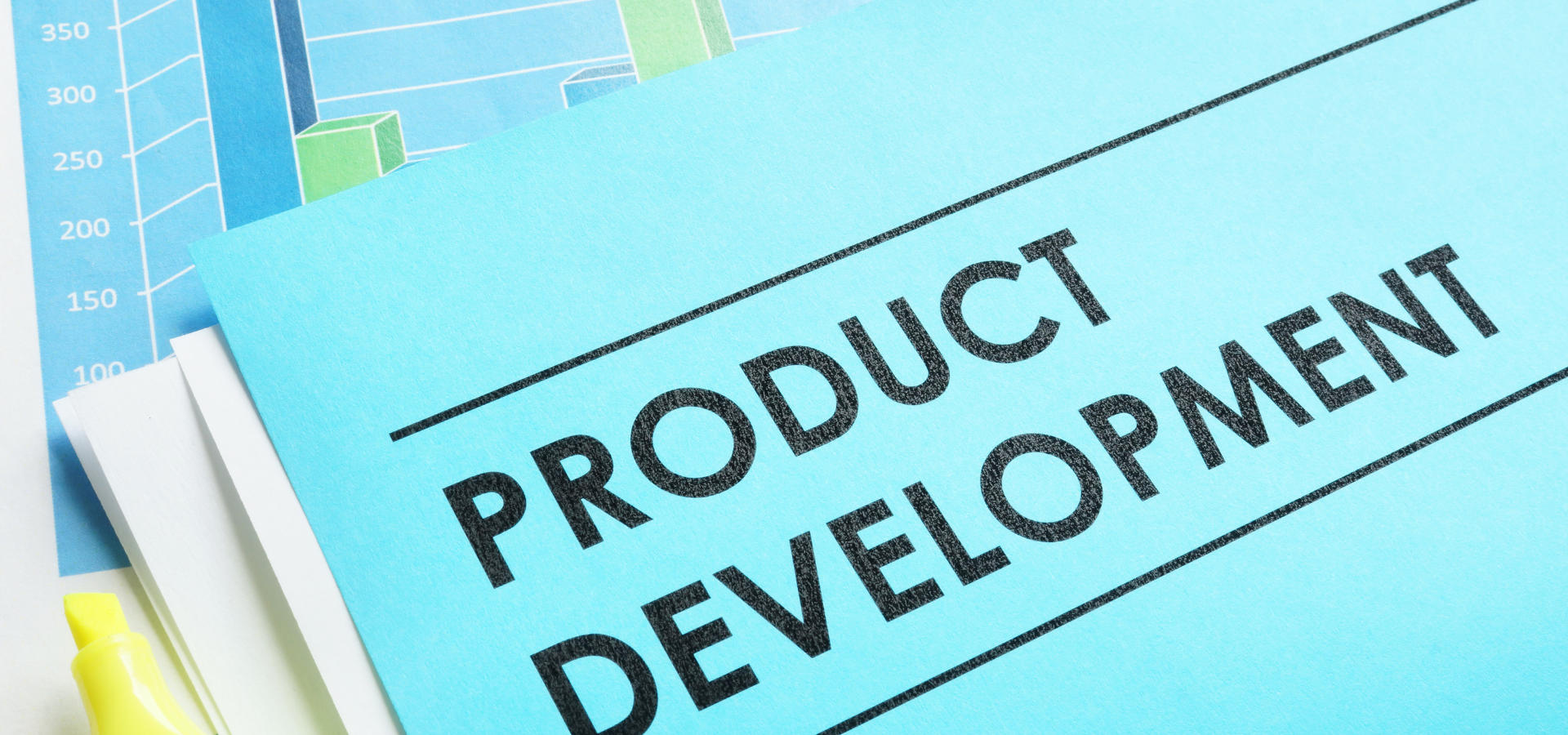Article: Why Getting Product Development Right Is the Single Most Important Thing for Startup Success

Why Getting Product Development Right Is the Single Most Important Thing for Startup Success
Author: Waqar B. Hashim is a veteran product development leader with over 30 years of experience bringing complex hardware-software integrated products to market, generating more than $5 billion in sales worldwide.
Launching a startup is exciting, full of promise and possibility. Yet, the road from idea to thriving business is fraught with obstacles. According to CB Insights, the top reasons startups fail include lack of market need, running out of cash, and being outcompeted. At the core of many of these failures lies one common denominator: poor product development.
It is important to note that getting product development right isn't just a technical function. It’s the strategic backbone of a successful startup. When executed correctly, it directly impacts funding, customer adoption, cash flow, marketing efficiency, team focus, and long-term scalability. Based on working with startup founders as a product development coach, we'll explore why mastering product development is the single most important thing a startup can do to increase its chances of success.
1. Product Development Determines Product-Market Fit
Startups don’t fail because they can’t build a product. They fail because they build the wrong one. Product-market fit (PMF) is the holy grail of startup traction, and it is entirely dependent on the product development process with correctly executed stages.
Correct product development begins with understanding the customer’s pain point, not the founder's vision. This requires:
-
Deep market research
-
User interviews
-
Competitive analysis
-
Prototyping and testing
Startups that engage in early and frequent validation of their ideas dramatically increase their odds of building something people actually want. Iterative development based on real-world feedback allows teams to pivot early, refine features, and solve the right problem.
Failing to find product-market fit is one of the most cited reasons for startup collapse. But when product development is driven by customer discovery and validation, the product becomes a tool to test and refine business assumptions, not a shot in the dark.
2. Good Product Development Reduces the Risk of Running Out of Cash
Running out of cash is a fatal risk for startups. What most founders miss is that poor product development accelerates this timeline.
When teams build too much, too soon, or invest in unnecessary features, they burn through resources without validating that customers will pay. A disciplined approach to product development—like building a Minimum Viable Product (MVP)—enables startups to conserve cash while learning.
Instead of pouring money into a full-featured platform, smart teams launch small, test big, and only scale what works. This lean product approach creates a feedback loop that minimizes waste, sharpens priorities, and stretches the runway long enough to find what customers truly value.
3. Investor Confidence Is Built on Product Clarity
When raising capital, your product story is everything. Investors aren’t just buying into your vision—they're buying into your execution.
A founder who demonstrates that they understand their users, have tested assumptions, and have a clear roadmap is much more investable than someone who just has an idea. Great product development produces more than a working demo. It produces:
-
Documented user insights
-
Traction metrics
-
A product roadmap based on validated learning
-
A rational funding ask tied to product milestones
These are the artifacts that build trust. Getting product development right signals to investors that the team has de-risked the opportunity and knows how to use capital efficiently.
4. Marketing and Sales Become Easier With the Right Product
No amount of advertising can save a product that doesn’t solve a real problem. Startups often spin their wheels trying to "market their way out" of a poor product.
But with good product development, the marketing writes itself. When the product is:
-
Built around a clear, urgent need
-
Simple to understand and use
-
Differentiated in a meaningful way
...then word-of-mouth takes hold, customer acquisition costs decrease, and conversion improves.
Moreover, features built based on user input give your sales team powerful stories and proof points. It aligns the go-to-market strategy with actual user behavior, making growth more efficient and scalable.
5. Team Efficiency and Focus Improve
A startup team’s time is its most valuable asset. Poorly directed teams spend countless hours building the wrong things, constantly shifting priorities, and burning out without seeing results.
Effective product development provides clarity:
-
What to build next
-
What not to build yet
-
Who should own what
It also aligns everyone—designers, developers, marketers, and leadership—around a single North Star: the user. With structured processes like Agile, lean sprints, and hypothesis testing, team velocity improves and morale stays high because progress is visible and grounded in reality.
Startups that "wing it" with product development often end up with bloated roadmaps, confused teams, and missed deadlines. By contrast, structured product thinking creates alignment, accountability, and momentum.
6. Strong Product Development Helps With Competitive Differentiation
Startups are almost always entering markets where competitors already exist. The differentiator isn’t having a product—it’s having the right product.
Good product development means:
-
Knowing what customers hate about existing options
-
Building only what matters to them
-
Evolving fast based on feedback
While established players are weighed down by legacy systems and slow release cycles, startups can outmaneuver them by being laser-focused on real customer needs. This agility and responsiveness come from a tight product development loop that allows small teams to win big.
7. Legal, Compliance, and Scaling Are Easier With the Right Foundation
Product development affects not just what you build, but how you build it. Products developed with poor architecture, rushed compliance considerations, or lack of documentation often become technical debt nightmares.
But when startups treat product development as a strategic function, they:
-
Choose the right tech stack from the beginning
-
Document assumptions and features for legal audits
-
Prepare for scalability early on
This foresight prevents costly rework and legal risks. It makes scaling smoother and positions the company for growth, acquisition, or IPO.
8. Founders Avoid Burnout and Stay Mission-Driven
One of the most overlooked aspects of great product development is its impact on the founder’s mental health. Constantly second-guessing direction, pivoting without data, and chasing ideas that don't stick is exhausting.
Structured product development provides:
-
A sense of progress
-
Feedback that validates effort
-
Clear next steps
This rhythm keeps founders and teams motivated. It prevents wasted time and builds confidence that the company is on the right track.
Think Of Product Development As Your Startup’s Operating System
Every startup problem—whether it's funding, hiring, retention, sales, or scalability—can be traced back to the foundation of product development. Get it wrong, and you'll be guessing your way to failure. Get it right, and you create a platform for learning, growth, and lasting impact.
Here’s the truth: You don’t need to have the perfect idea. You need to learn faster than everyone else. And the way you learn is by building smart, testing fast, listening deeply, and iterating often.
That’s what real product development looks like.
For startup founders, especially those building something new for the first time, mastering product development is not optional. It’s your lifeline. It’s your greatest lever. And it might just be the difference between becoming another statistic and building something truly meaningful.
Need help mastering your product development process? At Smartware Advisors, we help founders turn ideas into tested products, MVPs into real businesses, and visions into traction. If you are stuck in any stage of your product development we can help get you unstuck.
Schedule a free strategy session to learn how we can help you.
#FirstTimeFounder #MVPDevelopment #StartupTips #ProductMarketFit #BuildInPublic #ValidateYourIdea #LeanStartup #StartupAdvice #SmartwareAdvisors


Leave a comment
This site is protected by hCaptcha and the hCaptcha Privacy Policy and Terms of Service apply.